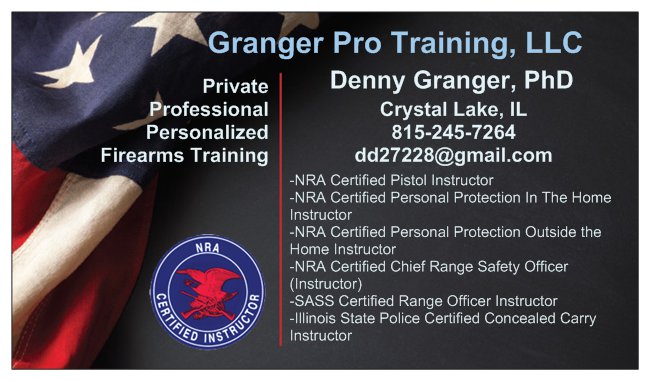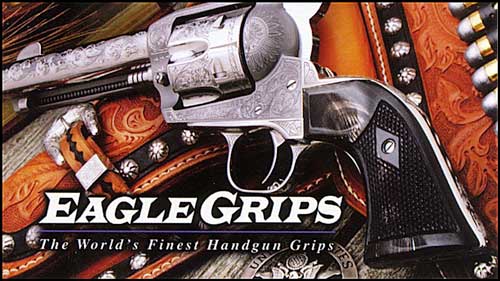Howdy, Stranger!
It looks like you're new here. If you want to get involved, click one of these buttons!
Quick Links


Check out the GGP Sponsors!








Categories


Check out the GGP Sponsors!








That's a wrap! Thanks for a great season. See you all next year!
We should be shooting 2nd Saturday and 4th Sunday again next year.
Final schedule to be finalized in February.
We should be shooting 2nd Saturday and 4th Sunday again next year.
Final schedule to be finalized in February.
Analysis of CCW law
 dd
Gnome, gnome on the range!
dd
Gnome, gnome on the range!
This from the Illinois Municipal League. I don't know what their game is but it looks like a good summary of the CCW law.<br />
<br />
================================================================================<br />
<br />
<br />
<p> Analysis of Concealed Carry Legislation<br />
By Brian Day, Lead Staff Attorney Published on Monday June 10, 2013 <br />
The Illinois General Assembly passed HB 183, which allows for concealed carry of firearms in Illinois. The legislation also makes a number of other changes concerning firearms. <br />
<br />
The legislation creates two new statutes and amends a number of existing statutes. The two new statutes are the Firearm Concealed Carry Act and the School Administrator Reporting of Mental Health Clear and Present Danger Determination Law.<br />
<br />
This analysis provides a breakdown of the contents of House Bill 183:<br />
<br />
New Act--The Firearm Concealed Carry Act:<br />
<br />
Section 10. Issuance of concealed carry licenses (Pages 3-5).<br />
<br />
<br />
Section 50. License renewal (Pages 18-19).<br />
<br />
Section 105. Duty of School Administrator (Page 39).<br />
<br />
Section 115. Amendatory changes to the Open Meetings Act (39-46).<br />
<br />
================================================================================<br />
<br />
<br />
<p> Analysis of Concealed Carry Legislation<br />
By Brian Day, Lead Staff Attorney Published on Monday June 10, 2013 <br />
The Illinois General Assembly passed HB 183, which allows for concealed carry of firearms in Illinois. The legislation also makes a number of other changes concerning firearms. <br />
<br />
The legislation creates two new statutes and amends a number of existing statutes. The two new statutes are the Firearm Concealed Carry Act and the School Administrator Reporting of Mental Health Clear and Present Danger Determination Law.<br />
<br />
This analysis provides a breakdown of the contents of House Bill 183:<br />
<br />
New Act--The Firearm Concealed Carry Act:<br />
<br />
Section 10. Issuance of concealed carry licenses (Pages 3-5).<br />
<br />
-
<br />
- The Department of State Police (ISP) must develop a concealed-carry applicaton no later than January 5, 2014 (180 days after the effective date).<br />
- The ISP must issue a concealed carry permit to qualified applicants.<br />
- The ISP must act on the application within 90 days.<br />
- The Licensee must carry the license when carrying a concealed firearm.<br />
- The Licensee must notify an officer of the existence of a concealed firearm during any traffic stop or other investigatory stop.<br />
- The ISP must maintain a database of applications and licenses. State, federal, and local law-enforcement agencies must have access to the database.<br />
-
<br />
- The Chief Law Enforcement Officer of a State or local law enforcement agency may object to an application upon a reasonable suspicion that the applicant poses a danger to him or herself, others, or the public safety.<br />
- The Chief Law Enforcement Officer must make the objection within 30 days after the application is entered into the ISP database.<br />
- The ISP is required to object if the applicant has been arrested 5 times in the last 7 years or 3 times for gang-related offenses in the last 7 years.<br />
-
<br />
- Creation of a 7-member Review Board appointed by the Governor.<br />
- The Review Board Reviews objections and supporting materials submitted by law-enforcement agencies.<br />
- Board may determine that an applicant is ineligible for a concealed carry license if a majority of the Board determines, by a preponderance of the evidence, that the applicant is a danger to self, others, or the public safety.<br />
-
<br />
- 21 years of age or older.<br />
- Possess valid FOID card.<br />
- No conviction for a misdemeanor involving the threat or use of violence or for 2 or more DUI's in the previous five years for both.<br />
- Have not been in a residential or court-ordered alcohol or drug treatment program for 5 years.<br />
- Completed required 16 hours of training.<br />
-
<br />
- Sets forth the requirements of the application for a concealed carry license.<br />
- An applicant for a concealed carry license waives all privacy and confidentiality rights and privileges under all State and federal law.<br />
-
<br />
- The ISP must conduct a background check of each applicant using electronic fingerprints.<br />
-
<br />
- The ISP must determine which states have similar concealed carry laws.<br />
- Non-residents of those states may apply for Illinois concealed carry license.<br />
- Non-residents without a concealed carry license may still transport firearms in their vehicles.<br />
-
<br />
<br />
<br />
Section 50. License renewal (Pages 18-19).<br />
-
<br />
- Licensees may renew their concealed carry license for 5-year periods.<br />
- Must complete 3 hours of training.<br />
-
<br />
- Requires notification to the ISP is any of the above occurs.<br />
-
<br />
- $150 fee for Illinois resident.<br />
- $300 fee for non-resident.<br />
- $75 fee for renewal.<br />
- 80% of the fees are deposited into the State Police Firearm Service Fund, and the remaining 20% is divided between the Mental Health Reporting Fund and the State Crime Lab Fund.<br />
-
<br />
- School property.<br />
- Child-care facilities.<br />
- State buildings.<br />
- Court buildings.<br />
- Local government buildings.<br />
- Jails, prisons, and detention centers.<br />
- Public transportation.<br />
- On-premises liquor establishments where 50% or more of the sales of the establishment are sales of alcohol.<br />
- Public gatherings requiring a local government permit.<br />
- Special event liquor establishments.<br />
- Public playgrounds.<br />
- Public parks and athletic facilities.<br />
- Cook County Forest Preserve.<br />
- College and university property.<br />
- Premises for riverboat gaming or horse racing, including off-the-track betting parlors.<br />
- Collegiate or professional stadiums or arenas.<br />
- Public libraries.<br />
- Airports.<br />
- Amusement parks.<br />
- Zoos and museums.<br />
- Premises regulated by the federal Nuclear Regulatory Commission.<br />
- Areas where firearms are prohibited by federal law.<br />
- Colleges and universities may enact differing or additional regulation.<br />
- Owner of private property may prohibit firearms on property if proper signs are posted.<br />
- Licensee may transport or store firearm in vehicle.<br />
-
<br />
- Concealed carry license is revoked if licensee becomes ineligible to hold a FOID card.<br />
- Concealed carry license is suspended if an order of protection is entered against the licensee.<br />
- License is invalid upon expiration.<br />
- Licensee may not carry a concealed firearm while under the influence of alcohol or drugs. Class A misdemeanor for first or second violation and Class 4 felony for a third violation.<br />
- Other violations of the Act are a Class B misdemeanor for the first violation, a Class A misdemeanor for a subsequent violation.<br />
- Violations under the Criminal Code do not apply to violations of the Firearm Concealed Carry Act.<br />
- The holder of a suspended or revoked license must surrender the license to the local law enforcement agency where he or she resides.<br />
-
<br />
- The ISP must establish an approval process for firearm training courses and publish a list of approved courses.<br />
- Applicant for concealed carry license must complete at least 16 hours of ISP-approved training to be eligible for a license.<br />
-
<br />
- The ISP must establish an approval process for firearm instructor training courses and publish a list of approved courses.<br />
-
<br />
- Specifies that the issuance of a concealed carry license does not exempt the licensee from the requirements for a background check upon the purchase or sale of a firearm.<br />
-
<br />
- All final administrative decisions of the ISP or the Review Board are subject to the provisions of the Administrative Review Law in the Code of Civil Procedure.<br />
-
<br />
- Provides that the regulation, licensing, possession, registration, and transportation of handguns and ammunition for handguns by licensees are exclusive powers and functions of the State.<br />
- Provides that any ordinance enacted on or before the effective date of the Firearm Concealed Carry Act that imposes regulations or restrictions on licenses or handguns or ammunition for handguns in a manner that is inconsistent with the Firearm Concealed Carry Act is invalid in its application to licensees under the Act on the effective date of the Act.<br />
- Preempts home-rule authority.<br />
-
<br />
- Requires the Director of ISP to create a task force to develop a plan to consolidate the concealed carry license and the FOID card.<br />
- Requires the task force to submit the plan to the Secretary of State and the General Assembly on or before March 1, 2014.<br />
-
<br />
- Provides that the ISP has a one-year exemption from the requirements of the Illinois Procurement Code with respect to contracts let under the Firearm Concealed Carry Act.<br />
- Authorizes the ISP to adopt rules-including emergency rulemaking.<br />
<br />
Section 105. Duty of School Administrator (Page 39).<br />
-
<br />
- Requires the principal or chief administrator of a public or private elementary or secondary school or of a public or private college or university to report to the ISP when a student is determined to pose a clear and present danger to himself, herself, or other.<br />
- The report must be made within 24 hours of the determination.<br />
-
<br />
- Provides criminal and civil immunity for clear-and-present-danger determinations (willful and wanton conduct excepted).<br />
<br />
Section 115. Amendatory changes to the Open Meetings Act (39-46).<br />
-
<br />
- The meetings and deliberations of the Concealed Carry Licensing Review Board are exempt from the requirements of the Open Meetings Act.<br />
-
<br />
- Provides that the following information is exempt from disclosure under the Freedom of Information Act: (i) the names and information of applicants and licensees under the Firearm Concealed Carry Act; (ii) the databases under the Firearm Concealed Carry Act; (iii) records of the Concealed Carry Licensing Review Board; and (iv) the objections of law-enforcement agencies to concealed carry applications.<br />
-
<br />
- Allows ISP access to drivers' licenses and other SoS records for purposes of concealed carry applications.<br />
-
<br />
- Makes conforming changes to allow ISP to maintain proper records and establishes the State Police Firearms Fund.<br />
-
<br />
- Creates the special funds set forth in the Firearm Concealed Carry Act.<br />
-
<br />
- Disqualifies a person who has been adjudicated as being mentally disabled from holding a license under the Act.<br />
-
<br />
- Makes it a business offense for the operator of a liquor establishment to knowingly failing to prohibit concealed firearms on the premises.<br />
-
<br />
- Makes conforming changes regarding notifications of mental disabilities with respect to firearm licensing.<br />
-
<br />
- Makes numerous conforming changes concerning the disqualification of a person with a mental disability to hold a FOID card.<br />
- Provides that the regulation, licensing, possession, and registration of handguns and handgun ammunition and the transportation of firearms and ammunition are exclusive functions of State government.<br />
- Provides that the regulation of the possession or ownership of assault weapons are exclusive powers and functions of the State, but that a unit of local government may pass an ordinance regulating assault weapons within 10 days after the effective date of the amendatory Act. The definition of "assault weapon" would be designated by ordinance.<br />
- Preempts home rule powers.<br />
-
<br />
- Makes corresponding changes with respect to the concealed carry and transportation of firearms.<br />
-
<br />
- Makes corresponding changes concerning the prohibition of the possession of a firearm by a person who is subject to an order of protection.<br />
-
<br />
- Makes corresponding changes regarding notifications of mental disabilities with respect to firearm licensing.<br />
-
<br />
- Makes corresponding changes regarding notifications of mental disabilities with respect to firearm licensing.<br />
-
<br />
- The Act will become upon effective immediately upon the Governor's signature or a veto override vote.<br />








